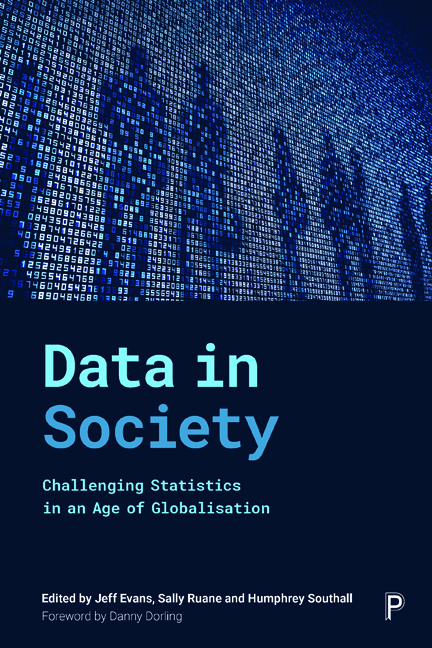Book contents
- Frontmatter
- Contents
- List of figures, tables and boxes
- Notes on contributors
- Foreword
- Preface
- General introduction
- Part I How data are changing
- Part II Counting in a globalised world
- Part III Statistics and the changing role of the state
- Part IV Economic life
- Part V Inequalities in health and wellbeing
- Part VI Advancing social progress through critical statistical literacy
- Epilogue: progressive ways ahead
- Index
22 - The Generation Game: ending the phoney information war between young and old
Published online by Cambridge University Press: 30 April 2022
- Frontmatter
- Contents
- List of figures, tables and boxes
- Notes on contributors
- Foreword
- Preface
- General introduction
- Part I How data are changing
- Part II Counting in a globalised world
- Part III Statistics and the changing role of the state
- Part IV Economic life
- Part V Inequalities in health and wellbeing
- Part VI Advancing social progress through critical statistical literacy
- Epilogue: progressive ways ahead
- Index
Summary
Introduction
A recurring theme in population ageing is that older people absorb an unfair share of national resources in which sustainability of state pensions and services and the legitimacy of state welfare are challenged (World Bank, 1994). The moral panic about intergenerational inequity gained political traction in the US (Samuelson, 1958; Preston, 1984), where Americans for Generational Equity (AGE) – funded mainly by the finance industry – took up the theme, advocating cuts in social security and increased private insurance (Quadagno, 1989). The policy of cutting state welfare for older people in the interests of younger people was formalised by Kotlikoff (1992) as ‘Generational Accounting’.
In Thatcher's Britain too, concerns about generational conflict over state welfare were expressed in Johnson and colleagues (1989). More recently, the Intergenerational Foundation (IF) think tank argued that spending on older people's state pensions, benefits, NHS and social care is unfair to younger generations facing lower living standards than their forebears. Provocatively titled books on this theme include those by Willetts (2010) and Howker and Malik (2010). The crisis rhetoric of apocalyptic demography cites statistics such as the ‘age support ratio’ (age 20–64/age 65+) which in the UK declined from 5.5 in 1950 to 3.7 in 2014 (Franklin et al, 2016, p 33). This ratio, however, neglects rising women's employment (from 55% to 71% between 1977 and 2017) and productivity gains. Organisation for Economic Co‑operation and Development (OECD) projections ignore the effects of future immigration, an unpredictable future birth rate and shaky assumptions about increasing life expectancy.
The Work and Pensions Select Committee inquiry recently considered the issue of equity between generations (WPSC, 2016). While we readily acknowledge that those of working age suffer greatly from public spending cuts, we question both whether this is caused by unjustified spending on older people and the assumption of a zero‑sum game, where generations must compete for finite state spending.
In this chapter, we examine how far the claims of unfair state spending on boomers and pensioners are supported by evidence, while noting the large and persistent structural inequalities within generations. We first consider pensions, then life expectancy.
- Type
- Chapter
- Information
- Data in SocietyChallenging Statistics in an Age of Globalisation, pp. 291 - 302Publisher: Bristol University PressPrint publication year: 2019



